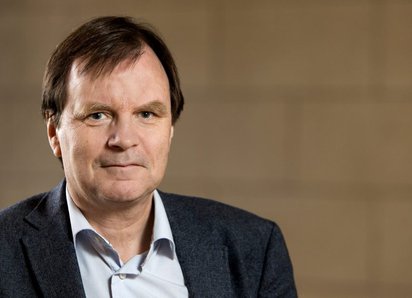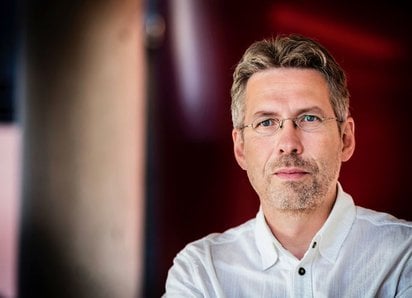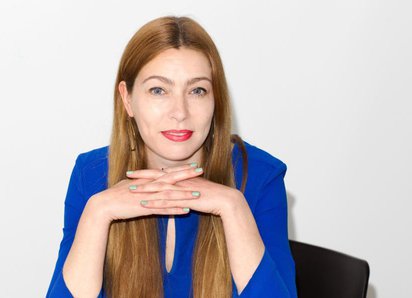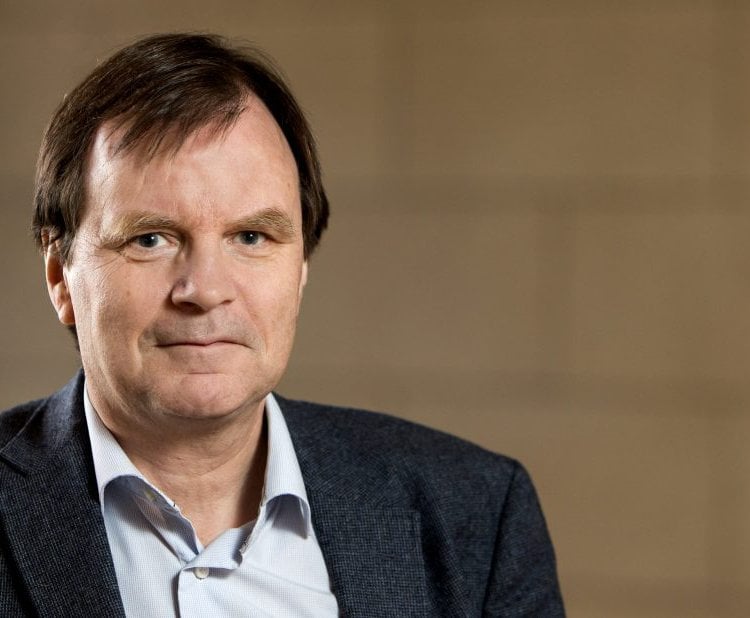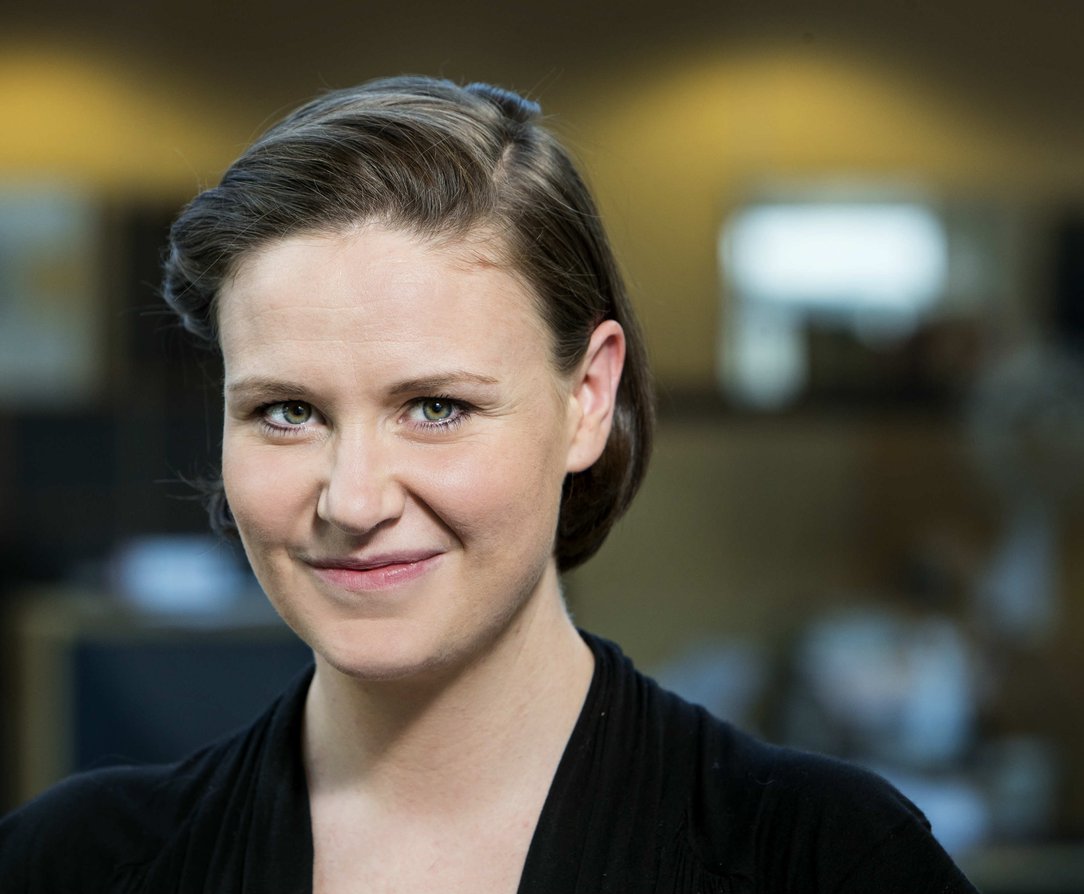
NOS-HS - The Power of Narratives
Höfði friðarseturThe project The Power of Narratives: Democracy and Media in Political Turmoil is led by Höfði Reykjavík Peace Centre and funded by the Joint Committee for Nordic Research Councils in the Humanities and Social Sciences (NOS-HS).
The primary objective of the project is to create a multidisciplinary network of Nordic academics focusing on the discourse on immigration issues and national identity in the Nordic countries and the impact of political narratives in a rapidly changing media environment. By pooling expertise from the different Nordic countries, the project will initiate and promote new critical research on the role of political narratives, and how the portrayal in the mainstream media has affected the far right parties’ capacity to further their agenda and make electoral advances.
About the project
The project The Power of Narratives: Democracy and Media in Political Turmoil is led by Höfði Reykjavík Peace Centre and funded by the Joint Committee for Nordic Research Councils in the Humanities and Social Sciences (NOS-HS).
The primary objective of the project is to create a multidisciplinary network of Nordic academics focusing on the discourse on immigration issues and national identity in the Nordic countries and the impact of political narratives in a rapidly changing media environment. By pooling expertise from the different Nordic countries, the project will initiate and promote new critical research on the role of political narratives, and how the portrayal in the mainstream media has affected the far right parties’ capacity to further their agenda and make electoral advances.
Höfði Reykjavík Peace Centre coordinates the project in cooperation with two other universities, Linköping University and the University of Helsinki.
Pia Hansson, Director of Höfði Reykjavik Peace Centre, Auður Örlygsdóttir, Project Manager at Höfði Reykjavík Peace Centre, Guðmundur Hálfdanarson, Professor of History and Dean of the School of Humanities, Jón Ólafsson, Professor in Comparative Cultural Studies, and Kristín Loftsdóttir, Professor in Anthropology at the University of Iceland coordinate the project on behalf of Höfði Reykjavík Peace Centre and the University of Iceland, in cooperation professors from the partner universities, Suvi Keskinen, Porfessor at the University of Helsinki and Catrin Lundström, Associate Professor at Linköping University.
Kick-off meeting in Norrköping
The project started with a meeting of the consortium in Norrköping on April 25 and an open seminar where the focus was on radical right-wing narratives and their manifestations.
Radical Right-Wing Narratives and Manifestations:
Hate speech, Anti-Immigration Sentiments and Racism in Europe
A REMESO Open Seminar
Racisms without Racism? On Ignorance and Denial
Marta Araújo, University of London, UK, and University of Coimbra, Portugal
The notion of ‘racisms without racism’, proposed by David T. Goldberg, encapsulates the assumption that racism would, if left alone, evaporate from Westernized societies. This stems from an understanding of racism as born out of prejudice and ignorance. Here it is argued that this view has invisibilized the persistence of institutionalized racism and portrayed struggles against racism as the problem.
Marta Araújo’s research integrates studies of Democracy and Human Rights and looks at of Eurocentrism and racism knowledge production, history teaching, and political struggles, as well as in public policy.
An Alternative World: Racism and Migration in the Present
Kristín Loftsdóttir, University of Iceland
Racism should be seen as part of the wider social and cultural context that populist movements operate within. Their claim of “non-racism” gain legitimacy through discourses of race and difference that are generally not recognized as racist but seen as constituting ‘common sense’. This is discussed from three angles: Covert racism; re-stitching of time, and ‘crisis talk’ as key to mobilization of populist movements.
Kristín Loftsdóttir is a professor of Anthropology. She has focused on racism, whiteness, mobility and crisis. Her most recent publication is the co-edited Messy Europe: Crisis, Race and Nation-State in a Postcolonial World (Berghahn, 2018) and Exotic Iceland: Coloniality, Crisis and Europe at the Margins (Routledge, 2018).
Welfare States, Rise of Authoritarian Nationalism and Post-Truth Politics
The second meeting of the consortium, workshop and open seminar was held in Helsinki on December 4 2018. This time the focus was on the rise of authoritarian nationalism and post-truth politics.
Welfare States, Rise of Authoritarian Nationalism and Post-Truth Politics
The Inviolable Truths of Race: How the Populist Right Set the Terms of the Debate on Immigration, and Why We Let Them Do It
Dr. Ben Pitcher, Senior Lecturer in History, Sociology and Criminology at the University of Westminster, UK
Disinformation, “konspiratsia” and fake news: The epistemic structure
Jón Ólafsson, Professor in Philosophy and Comparative Cultural Studies at the University of Iceland
Chair: Suvi Keskinen, Academy Research Fellow, Professor, Centre for Research on Ethnic Relations and Nationalism (CEREN), University of Helsinki.
Moderator: Post doctoral researcher Niko Pyrhönen, CEREN, University of Helsinki.
Democratic politics in the Western world have come under the spell of right wing populism and its divisive rhetoric. From Brazil to Russia – across the US and Great Britain movements have risen with leaders claiming fight for the common people against indifferent, self-serving and corrupt elites, with racism and xenophobia playing an important part in populist debates.
This workshop focuses on the way in which populist racisms are changing the terms of political debate, establishing a common political grammar that is shared by a range of politicians, journalists and commentators across a wide political spectrum. It considers the challenges faced by an anti-racist politics when it is framed by the far-right as a cause of political elites. It uses populist racism as a heuristic to consider some deep-rooted myths of national identity, cultural entitlement, and the racial politics of the welfare state.
The discussion will consider technological changes that put a strain on media discussion by the infiltration of fake news and disinformation, adding to the challenges of finding a common ground for discussion. Particular attention will be given to the concept of “fake news” which is used both to describe a growing social media industry associated with racist and xenophobic types of populism and by right wing nationalists to characterize the mainstream media. The concept will be explored from an epistemic as well as a historical perspective. Is there a substantive difference between today’s structure of disinformation and methods employed in the past for agitation and propaganda purposes?
Key questions/topics: What is the effect of the recent changes in the structure of nationalistic narratives and how does it affect public debate? What role does the welfare state play in the discourse on immigration in the Nordic countries and how did it affect the Vote Leave campaign? Is it possible to find a common ground for discussion on the development of modern western societies in light of growing sentiment of anti-establishment and suspicion towards academic and political elites in a changed media environment? Will “truths” and “facts” survive the current post-truth climate of public discourse?
The Power of Narratives: Democracy and Media in Political Turmoil
The third and last meeting in the project took place in Iceland in April 2019 when the consortium organised and participated in two panels at the conference Mobilities and Transnationalism in the 21st century on 28 - 30 April, 2019 in Hotel Radisson Blu Saga, under the title The Power of Narratives: Democracy and Media in Political Turmoil.
The conference brought together scholars from different fields interested in various forms and expressions of mobility and transnationalism. The conference included three keynote lectures by: Mimi Sheller, Professor of Sociology at Drexel University, Liz Fekete, Director of the Institute of Racial Relations and Sharon Macdonald, Professor in Social Anthropology at Humboldt University. More than 70 different presentations were grouped in 19 sessions.
The Power of Narratives: Democracy and Media in Political Turmoil
Populist rhetoric in many European countries has been characterized by growing anti-immigration sentiment and erosion of trust in the political establishment. It is a widespread belief that the Trump and Brexit campaigns achieved their victories on the basis of demagoguery and disinformation, undermining traditional democratic politics through cynical abuse of the media, as well as the fundamental role of the media as a channel for reliable information and open democratic discussion. There is a clear necessity to address these new and alarming realities by e.g. exploring “post-truth politics” and the impact of “alternative facts” in political discourse and opinion formation. In particular it is important to better understand how current populism is affecting the way Europe – and the rest of the world – is dealing with new and pressing political challenges such as immigration, a growing number of refugees and social and economic inequality.
Today’s media market has created various “online spheres” for deliberation. Has this allowed for the realization of a functioning public sphere, i.e. a place for open democratic debate? Or can it be argued that these spheres aren’t diverse enough and have instead become more like “echo chambers” where people are increasingly just communicating with people they already agree with? This panel will explore ways of changing the narrative in an increasingly fragmented society, focusing on democratic theory, particularly on the most recent discussion on political epistemologies.
How do we change the narrative and utilize it to build bridges between different societal groups in a changing media environment, and what is the role of the academia?
Moderator: Guðmundur Hálfdánarson, PI of the NOS-HS project, professor of history and Dean of the School of Humanities at the University of Iceland.
Truths about immigration and race: epistemologies of right-wing populism
Ben Pitcher, Senior Lecturer in Sociology at the University of Westminster, UK
While responsibility for their prominence might lie with mainstream politicians and media, it is hard to contest the impact of right-wing populist ideas on contemporary debates around immigration. Drawing on the contemporary example of Brexit Britain, I begin by arguing that populist racism has installed a range of hegemonic ‘truths’ about immigration that are widely accepted by a diverse range of political and cultural actors. Even those who ostensibly oppose the racism of the far right will often draw upon, and remain trapped within, the political grammar of right-wing populism.
Having established the significance of right-wing populist ideas in establishing these ‘truths’ about immigration and race, I go on to consider the ambivalent and conflicted status of truth within right-wing populist discourse itself. I describe some broader structural affinities that connect together the realm of conspiracy theories and ‘alternative facts’ with racial prejudice and innuendo: both are resistant to empirical facts, depending as they do on beliefs that refute or deny ‘official’ accounts of the world and on an investment in truths that cannot be spoken. I suggest that such positions have in common an opposition to authority and a refusal to accept the established terms of debate in liberal democracy and civil society: they are not interested in winning arguments, but in denying their legitimacy. I explore the importance of the realm of subjectivity, anecdote and felt experience in giving expression to such truths, and the ways in which they mirror the rhetoric of those who give voice to the experience of racism and discrimination. Finally, I reflect on the implications of right-wing populist orientations to truth for an effective politics of anti-racism.
“The Whole World’s Welfare Desk” and other Transnational Anti-Immigration Narratives on Deservingness
Gwenaëlle Bauvois, Lecturer in ethnic relations and researcher at CEREN research center (Swedish School of Social Sciences), University of Helsinki and Niko Pyrhönen, Senior Researcher in the Finnish Institute of Migration and postdoctoral researcher at the Swedish School of Social Science, University of Helsinki
During the 2000s, right-wing populist parties across the Nordic countries have increasingly added economic arguments in their political rhetoric for the purpose of justifying an anti- immigration agenda. In addition to its function as a justificatory resource, this welfare nationalist framing of anti-immigration mobilization has helped the parties in appealing to a divergent electorate of blue and white collar workers. For the former, questioning immigrants’ deservingness to welfare redistribution carries the promise of better availability of the scarce redistributive resources, whereas the allure of lower tax burden can be harnessed to electrify the middle classes.
The recent years, however, have seen many types of intransigent anti-immigration rhetoric channeled to potential electorates via countermedia, the ‘ultrapartisan‘ outlets that position themselves against the ‘elitist’ mainstream media (Ylä-Anttila, Bauvois, Pyrhönen, 2019). In this paper, we study, firstly, how these protagonists of immigration control - both the countermedia outlets and the discussants - narrate the role of the state to its citizens and other denizens, and, secondly, the extent to which welfare nationalist arguments against immigration can be considered a Nordic phenomenon.
We collect one month of coverage from three countermedia outlets Kansalainen (FI), BreitbartNews (US) and Fdesouche (FR), comparing the absolute and relative frequencies of articles that mention specific (i) immigration, (ii) redistribution and (iii) immigration and redistribution keywords. We then analyze the top shared articles and their comments quantitatively, axially coding the subject matter using ATLAS.ti.
“Experience the Wonder”: Creating Nordic Whiteness Through Tourist Promotional Material
Kristín Loftsdóttir, Professor in Anthropology at the University of Iceland
The rise of populist movements with strong anti-migration agenda have made racism more visible in various European countries, in the form of violence and hateful acts toward economic migrants, refugees and citizens with a minority background. The presentation focuses on the process of racialization, which naturalizes more hateful expressions of racism by assigning particular types of bodies to particular spaces. I stress the need to recognize racism as a part of the wider social and cultural context that populist movements operate within in the Nordic countries and beyond and the need to focus on racism as not only something having to do with migrant “others.” I exemplify this by focusing on one particular production of whiteness, Blue Lagoon promotional material, but as several scholars have shown, the Nordic or Nordic countries are generally associated with “whiteness” (Lundstrom and Hubenette 2011; Hervik 2018; McIntosh 2015; Loftsdóttir 2015). In Iceland, the tourism industry has been booming for the last ten years, a favorable destination of especially from the US and UK. The presentation asks if this material takes part in creating Iceland as a “white” and “safe” space for a more privileged part of the world.
One picture, eight thousand words: the King’s Fountain and the narratives of intercultural nationalism in Portugal
Marta Araújo, Senior Researcher at the Centre for Social Studies of the University of CES – University of Coimbra
I analyse the narratives around a painting entitled ‘King’s Fountain’, which constructs a heterogeneous nation by emphasising the high proportion of Black Africans living in 16th century Lisbon. The image has been widely deployed in the memorialization of colonialism, and I will focus on four different instances: 1) The publication ‘Black People in Portugal: centuries XVI to XIX’ by the National Commission for the Commemoration of Portuguese Discoveries (1999), where the painting occupies a central position; 2) History textbooks in compulsory schooling, where the picture is illustrative of the wider depoliticisation of colonialism and enslavement; 3) The media controversy around the challenging of the authenticity of the painting, when it was included in the exhibition ‘Lisbon – Global City of the Renaissance’ in early 2017; 4) The exhibition ‘Racism and Citizenship’ at the Monument for the Discoveries in Lisbon, also in 2017, the first public exhibition on racism in democratic Portugal. Despite its nuances and variations, the uses of the painting sustain a narrative that projects the Portuguese as ‘pioneers of globalisation’, with a historical vocation for interculturality – offsetting race/power. I draw on Fortier’s (2008) notion of ‘multicultural nationalism’, which inscribes multiculture at the core of the project of the nation, to argue that the increasing mobilisation of such images of historical diversity functions as an alibi against accusations of institutional racism, and that ‘intercultural dialogue’, rather than multiculturalism, acts as an effective strategy in evading the need for political change.
